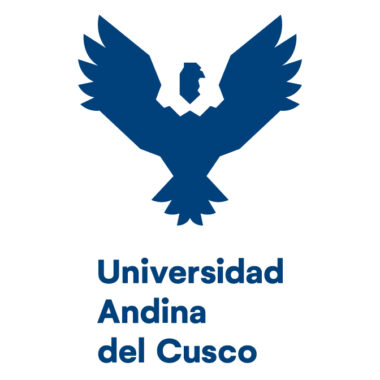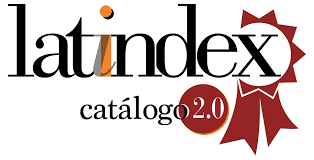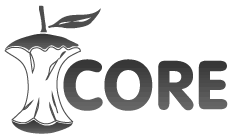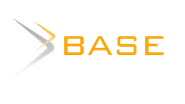Entrepreneurship education: a bibliometric análisis
DOI:
https://doi.org/10.36881/yachay.v12i1.673Keywords:
education, entrepreneurship, employment, bibliometricAbstract
Currently, entrepreneurship education is considered a solution to economic, social and political challenges. It is a fundamental tool for promoting the development of business and leadership skills essential to succeed in today's world. This study is based on a method of bibliometric analysis of entrepreneurial education in the Scopus database. The results show that, in 2022, the United Kingdom was the country that contributed the most to scientific production on entrepreneurship education. The most cited article is entitled "A Contemporary Approach to Entrepreneurship Education" and, according to Lotka's Law, 24 authors are considered prolific in the scientific production of this topic of study. According to Bradford Law, the most productive magazine on entrepreneurship education is Sustainability (Switzerland). The co-authorship network is comprised primarily of Wiboawo, A., Kusumojanto, D.D. and Narmaditya, B.S. The frequency of keywords in studies of entrepreneurship education include entrepreneur, education, entrepreneurship education, student, entrepreneurial intention, entrepreneurship education, entrepreneurship, and perception. In conclusion, the results show that entrepreneurship education is a topic of great interest in the scientific community. In addition, the findings suggest that entrepreneurship education can be an effective means to develop the necessary skills to compete in the market. Therefore, it is recommended that further research be conducted in this field to achieve a more complete and detailed understanding.
Downloads
References
Ahmed, T., Chandran, V. G. R., Klobas, J. E., Liñán, F., & Kokkalis, P. (2020). Entrepreneurship education programmes: How learning, inspiration and resources affect intentions for new venture creation in a developing economy. The International Journal of Management Education, 18(1). https://doi.org/10.1016/j.ijme.2019.100327
Álvarez Arregui, E., & Rodríguez Martín, A. (2015). Inspirando el cambio en educación: Ecosistemas de formación para aprender a emprender. Estudios Pedagógicos (Valdivia), 41(especial), 9-29. https://www.redalyc.org/pdf/1735/173544961002.pdf
Argandoña Gómez, F. A., Persico Jiménez, M. C., Visic Matulic, A. M., & Bouffanais Cuevas, J. I. (2018). Estudio de Casos: Una metodología de enseñanza en la educación superior para la adquisición de competencias integradoras y emprendedoras. Tec Empresarial, 12(3), 7-16. https://doi.org/http://dx.doi.org/10.18845/te.v12i3.3934
Arias-Arciniegas, C. M., Tovar, P. L., López, C. E. V., & Cuervo, J. H. E. (2020). Emprendimiento universitario y educación emprendedora: Una revisión de literatura. Revista Reflexiones y Saberes, 12, 51-65. http://34.231.144.216/index.php/RevistaRyS/article/view/1192
Arruti, M. (2016). El desarrollo del perfil del "teacherpreneur" o profesor-emprendedor en el currículum del grado de Educación Primaria. Revista de Educación (19), 177-194. https://dialnet.unirioja.es/servlet/articulo?codigo=5329057
Ázqueta- Díaz de Alda, A. (2017). El concepto de emprendedor: origen, evolución e introducción. In Simposio Internacional El Desafío de Emprender en la Escuela del Siglo XXI (2017), 21-39. Universidad de Sevilla. https://hdl.handle.net/11441/74177
Azqueta Díaz de Alda, A., & Sanz Ponce, R. (2021). Educación emprendedora y filosofía de la educación. Cuestiones pedagógicas: revista de ciencias de la educación. https://redined.educacion.gob.es/xmlui/handle/11162/217718
Barreto, S., Zúñiga Jara, S., & Ruiz Campo, S. (2016). Educación e Intención Emprendedora en Estudiantes Universitarios: Un Caso de Estudio. Formación universitaria, 16(1), 25-34. https://doi.org/http://dx.doi.org/10.4067/S0718-50062016000100004
Besong, F., & Holland, C. (2015). The Dispositions, Abilities and Behaviours (Dab) Framework for Profiling Learners’ Sustainability Competencies in Higher Education. Journal of Teacher Education for Sustainability, 17(1), 5-22. https://doi.org/10.1515/jtes-2015-0001
Calzado-Barbero, M., Fernández-Portillo, A., & Almodóvar-González, M. (2019). Educación emprendedora en la universidad. Journal of Management and Business Education, 2(2), 127-159. https://www.nitoku.com/@journal.mbe/issue%20v2%20n2%20educaci%C3%B3n%20emprendedora%20en%20la%20universidad
Carrasco, F. J. (2016). Desarrollo de habilidades mediante el aprendizaje autónomo. Empresa, 5(3), 52-60. https://riunet.upv.es/handle/10251/80098
Castro, J. P. (2017). Educación emprendedora y metodologías activas para su fomento. Revista electrónica interuniversitaria de formación del profesorado, 20(3), 33-48. https://revistas.um.es/reifop/article/view/272221
Contreras, T. G. (2014). La importancia de la Innovación y el Emprendimiento en los docentes del Sistema Educacional Chileno. Aspectos aconsiderar en la reflexión. Revista Electrónica Gestión de las Personas y Tecnología, 7(19), 68-78.
Díaz de Aldaå, A. A. (2019). Análisis del concepto ‘emprendedor’ y su incorporación al ámbito educativo. TORROSA, 31(1), 57-80. http://dx.doi.org/10.14201/teri.19756
Flores-Novelo, A., Bojorquez Carrillo, A., & Canche Montiel, C. (2020). El impacto de la educación en la intención emprendedora: Efecto del entorno universitario. Revista ESPACIOS, 41(39), 10-15. http://ww.revistaespacios.com/a20v41n39/a20v41n39p18.pdf
Gutiérrez Cruz, M., Such Devesa, M. J., & Gabaldón Quiñones, P. (2020). La mujer emprendedora en el turismo rural: peculiaridades del caso costarricense a través de la revisión bibliográfica. Cuadernos de Turismo, 46(1), 185-214. https://doi.org/https://doi.org/10.6018/turismo.451691
Hernández Sánchez, B., Vargas Morua, G., González Cedeño, G., & Sánchez García, J. C. (2020). Discapacidad intelectual y el uso de las tecnologías de la información y comunicación: Revisión sistemática. Revista INFAD de Psicología. International Journal of Developmental and Educational Psychology., 2(1), 177-188. https://doi.org/10.17060/ijodaep.2020.n1.v2.1830
Higgins, D., & Elliott, C. (2011). Learning to make sense: what works in entrepreneurial education? Journal of European Industrial Training, 35(4), 345-367. https://doi.org/10.1108/03090591111128324
Hoyos Serrano, M., & Espinoza Mendoza, E. (2013). Estudios descriptivos. Revista de Actualización Clínica Investiga, 33, 1670-1674. http://www.revistasbolivianas.ciencia.bo/scielo.php?pid=S2304-37682013000600002&script=sci_arttext&tlng=es
Huang‐Saad, A. Y., Morton, C. S., & Libarkin, J. C. (2018). Entrepreneurship Assessment in Higher Education: A Research Review for Engineering Education Researchers. Journal of Engineering Education, 107(2), 263-290. https://doi.org/10.1002/jee.20197
Joensuu, S., Viljamaa, A., Varamäki, E., & Tornikoski, E. (2013). Development of entrepreneurial intention in higher education and the effect of gender – a latent growth curve analysis. Education + Training, 55(8/9), 781-803. https://doi.org/10.1108/ET-06-2013-0084
Jones, C., & English, J. (2004). A contemporary approach to entrepreneurship education. Education + Training, 46(8/9), 416-423. https://doi.org/10.1108/00400910410569533
Nowiński, W., Haddoud, M. Y., Lančarič, D., Egerová, D., & Czeglédi, C. (2019). The impact of entrepreneurship education, entrepreneurial self-efficacy and gender on entrepreneurial intentions of university students in the Visegrad countries. Studies in Higher Education, 44(2), 361-379. https://doi.org/10.1080/03075079.2017.1365359
Orduña-Malea, E., & Costas, R. (2021). Link-based approach to study scientific software usage: The case of VOSviewer. Scientometrics, 126(9), 8153-8186. https://doi.org/10.1007/s11192-021-04082-y
Osorio Tinoco, F. F., & Pereira Laverde, F. (2011). Hacia un modelo de educación para el emprendimiento: una mirada desde la teoría social cognitiva. Cuadernos de administracion, 24(43), 13-33. http://www.scielo.org.co/scielo.php?script=sci_arttext&pid=S0120-35922011000200002
Passaro, R., Quinto, I., & Thomas, A. (2018). The impact of higher education on entrepreneurial intention and human capital. Journal of Intellectual Capital, 19(1), 135–156. https://doi.org/10.1108/JIC-04-2017-0056
Pérez, F. V. (2006). Educación emprendedora. Pharos, 13(1), 59-65. https://www.redalyc.org/pdf/208/20813107.pdf
Perianes-Rodriguez, A., Waltman, L., & Van Eck, N. J. (2016). Constructing bibliometric networks: A comparison between full and fractional counting. Journal of informetrics, 10(4), 1178–1195.
Popescu, C., Bostan, I., Robu, I.-B., Maxim, A., & Diaconu (Maxim), L. (2016). An Analysis of the Determinants of Entrepreneurial Intentions among Students: A Romanian Case Study. Sustainability, 8(8), 771. https://doi.org/10.3390/su8080771
Price, D. de S. (1976). A general theory of bibliometric and other cumulative advantage processes. Journal of the American society for Information science, 27(5), 292-306.
Ramírez Gavidia, G. L. (2020). Estudio comparativo del nivel académico de los estudiantes de bachillerato intensivo y bachillerato general unificado. Conrado, 16(73), 377-384. http://scielo.sld.cu/scielo.php?pid=S1990-86442020000200377&script=sci_arttext&tlng=pt
Ratten, V., & Jones, P. (2021). Covid-19 and entrepreneurship education: Implications for advancing research and practice. The International Journal of Management Education, 19(1), 100432. https://doi.org/10.1016/j.ijme.2020.100432
Rauch, A., & Frese, M. (2007). Let’s put the person back into entrepreneurship research: A meta-analysis on the relationship between business owners’ personality traits, business creation, and success. European Journal of Work and Organizational Psychology, 16(4), 353-385. https://doi.org/10.1080/13594320701595438
Sánchez García, J. C., Ward, A., Hernández, B., & Florez, J. L. (2017). Educación emprendedora: Estado del arte. Propósitos y Representaciones, 5(2), 401-473. http://www.scielo.org.pe/scielo.php?pid=S2307-79992017000200010&script=sci_arttext
Sánchez Torné, I., & Perez, M. (2019). El impacto de la educación en la intención emprendedora de los estudiantes del grado de economía. Revista de Estudios Empresariales (1), 20-40. https://doi.org/https://dx.doi.org/10.17561/ree.v2019n1.2
Urbizagastegui Alvarado, R. (1996). Una revisión crítica de la Ley de Bradford. Investigación Bibliotecológica: Archivonomía, Bibliotecología e Información, 10(20). https://doi.org/10.22201/iibi.0187358xp.1996.20.3835
Urbizagastegui, R. (1999). La ley de Lotka y la literatura de bibliometría. Investigación Bibliotecológica: Archivonomía, Bibliotecología e Información, 13(27). https://doi.org/10.22201/iibi.0187358xp.1999.27.3913
Urbizagástegui Alvarado, R., & Restrepo Arango, C. (2011). La ley de Zipf y el punto de transición de Goffman en la indización automática. Investigación Bibliotecológica, 25(54), 71-92. http://rev-ib.unam.mx/ib/index.php/ib/article/view/27482
Vélez, C., Bustamante, M., Loor, B., & Afcha, S. (2020). La educación para el emprendimiento como predictor de una intención emprendedora de estudiantes universitarios. Formación universitaria, 13(2), 63-72. https://doi.org/10.4067/S0718-50062020000200063
Villegas, B. (2003). Rápida y pertinente búsqueda por internet mediante operadores booleanos. Universitas Scientiarum, 8, 51-54. https://www.redalyc.org/pdf/499/49900808.pdf
Voda, A., & Florea, N. (2019). Impact of Personality Traits and Entrepreneurship Education on Entrepreneurial Intentions of Business and Engineering Students. Sustainability, 11(4), 1192. https://doi.org/10.3390/su11041192
Zhu, J., & Liu, W. (2020). A tale of two databases: The use of Web of Science and Scopus in academic papers. Scientometrics, 123(1), 321-335. https://doi.org/10.1007/s11192-020-03387-8
Downloads
Published
How to Cite
Issue
Section
License
Copyright (c) 2023 Pablo Alcides Aguilar-Hernández, José Valdo Acosta-Tzin

This work is licensed under a Creative Commons Attribution 4.0 International License.
You are free to:
- Share — copy and redistribute the material in any medium or format
- Adapt — remix, transform, and build upon the material
- The licensor cannot revoke these freedoms as long as you follow the license terms.
Under the following terms:
-
Attribution — You must give appropriate credit, provide a link to the license, and indicate if changes were made. You may do so in any reasonable manner, but not in any way that suggests the licensor endorses you or your use.















